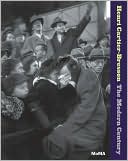Where Jesus Walked: Experience the Presence of God
In Where Jesus Walked, renowned photographer Ken Duncan introduces readers to awe-inspiring photos of places in and around Israel where Jesus lived, died, and rose again.\ \ An award-winning photographer introduces readers to awe-inspiring places in and around Israel where Jesus lived, died, and rose again. The book also includes contemplative insights from a variety of renowned authors such as St. Augustine, Dietrich Bonhoeffer, and C.S. Lewis. (Biblical Studies)\
Search in google:
In Where Jesus Walked, renowned photographer Ken Duncan introduces readers to awe-inspiring photos of places in and around Israel where Jesus lived, died, and rose again.
Where Jesus Walked\ Experience the Presence of God \ \ By KEN DUNCAN \ Thomas Nelson\ Copyright © 2006 Ken Duncan\ All right reserved.\ ISBN: 978-1-59145-344-4 \ \ \ Chapter One\ Promise and Anticipation\ Brief descriptions and verbal sketches make up the account of Jesus' arrival. Tradition has supplied a host of suggestions, but the heart of the story beats with wonder and familiarity. Babies inspire great expectations. Yet babies arrive every day. What was so special about one baby, born in a wayside of the ancient world? All of us arrive the same way; why not the One sent to show us the way out? Why wouldn't the Savior of the common man choose the commonest of births? Why wouldn't the most expected take the least expected means of arrival?\ Jesus was a fulfillment of ancient promises. Words of God's faithfulness echoed down through the centuries until that moment when "the Word became flesh and made his dwelling among us" ( John 1:14). The familiar carol expresses it well: "The hopes and fears of all the years are met in Thee tonight." Our journey, the one we call "life," does have a hopeful destination. And the good news of the Gospels tells us that walking with Jesus takes us there.\ Let us notice at the very first glance his miraculous conception. It was a thing unheard of before, and unparalleled since, that a virgin should conceive and bear a Son. The first promise ran thus, "The seed of the woman," not the offspring of the man. Since venturous woman led the way in the sin which brought forth Paradise lost, she, and she alone, ushers in the Regainer of Paradise.... His mother has been described simply as "a virgin," not a princess, or prophetess, nor a matron of large estate. True the blood of kings ran in her veins; nor was her mind a weak and untaught one, for she could sing most sweetly a song of praise; but yet how humble her position, how poor the man to whom she stood affianced, and how miserable the accommodation afforded to the new-born King!\ Immanuel, God with us in our nature, in our sorrow, in our lifework, in our punishment, in our grave, and now with us, or rather we with him, in resurrection, ascension, triumph, and Second Advent splendour. —C.H. Spurgeon\ An angel sent out the birth announcements: Elizabeth was expecting! The exciting news overwhelmed her family and friends and initiated a series of delightful surprises. As Elizabeth whispered her praise to God for the baby she felt so strong and alive inside of her, the Holy Spirit revealed to her the biggest surprise yet: Mary would give birth to God's Son.\ Thus Elizabeth exclaimed, "the mother of my Lord" when she saw Mary standing at her doorstep, beaming with excitement. Elizabeth was by now no stranger to the wonder of the impossible, so she believed Mary and rejoiced.\ Even though she herself was pregnant with a long-awaited son, Elizabeth could have envied Mary, whose son would be even greater than her own. Instead, she was filled with joy that the mother of her Lord would visit her. Have you ever envied people whom God has apparently singled out for special blessing? A cure for jealousy is to rejoice with them, realizing that God uses his people in ways best suited to his purpose. The next time you feel a twinge of envy toward someone, remember how Elizabeth rejoiced. Make it your aim to enjoy that person's blessing.\ Rejoice in good news, wherever you find it. — Neil Wilson\ The Romans ruled the civilized world at this time. By contrast, Joseph controlled very little. Against his better judgment and political convictions he complied with the Roman order and traveled with Mary to Bethlehem. Often people feel like Joseph, caught by forces larger than they are....\ The government forced Joseph to make a long trip just to pay his taxes. His fiancée, who had to go with him, was going to have a baby any moment. But when they arrived in Bethlehem, they couldn't even find a place to stay. Doing God's will often takes people out of their comfort zones. Jesus' life began in poverty. Later, Jesus would stress to his disciples what it meant to have no place to lay one's head (Luke 9:58). Those who do God's will are not guaranteed comfortable lives. But they are promised that everything, even their discomfort, has meaning in God's plan. —Life Application Bible Commenta ry—Luke\ The birth of the Christ child was a humble event that went unnoticed in the hustle and bustle of Bethlehem. Men bringing their animals to the stable probably did not even give the young family a second glance. The innkeeper who owned the stable probably forgot about Mary and Joseph in his rush to serve his paying customers.\ But God knows the hearts of all people. He saw some grubby, lowly shepherds in the fields guarding their flocks of sheep. Like Mary and Joseph, they were commoners whom no one noticed. But they were given the most incredible news that night: The Messiah was born in Bethlehem!\ A choir of angels announced the news. At first the shepherds were frightened, but then they accepted the message with joy. They said, "Come on, let's go to Bethlehem! Let's see this wonderful thing that has happened, which the Lord has told us about" (Luke 2:15, NLT). They ran into the village, jostled their way through the crowds, and found the baby in the manger. They were so excited about what they witnessed that they told everyone they met about the birth of the Messiah! —Bill Bright\ Does it not seem mysterious that God brought the first message of the birth of Jesus to ordinary people rather than to princes and kings? In this instance, God spoke through his holy angel to the shepherds who were keeping sheep in the fields. This was a lowly occupation, so shepherds were not well educated. But Mary in her song, the Magnificat, tells us the true story: "He hath put down the mighty from their seats, and exalted them of low degree. He hath filled the hungry with good things; and the rich he hath sent empty away" (Luke 1:52–53, KJV). What a word for our generation!\ What was the message of the angel to the shepherds? First, he told them not to be afraid.... When the angel had quieted the fears of the shepherds, he brought this message, one forever to be connected with the evangel: "For, behold, I bring you good tidings of great joy, which shall be to all people. For unto you is born this day in the city of David a Savior, which is Christ the Lord" (Luke 2:10–11, KJV). —Billy Graham\ When Mary and Joseph brought the Child Jesus to present him to the Lord, it was not an empty ritualistic ceremony. It was not merely fulfilling the Law of the Lord. For them it was a total oblation of Jesus to the Father and also an oblation of themselves.\ Having been formed by the Holy Spirit throughout her tender years, Mary understood the purpose of the coming of Jesus into the world. This presentation was the formal beginning of his life dedicated solely to his Father's will.\ At this ceremony Mary also offered herself to God in whatever capacity she could fulfill her role in his divine plan. Simeon prepared Mary for her role: "A sword will pierce your own soul too" (Luke 2:35).\ Each day Mary committed herself anew to God's plan. Mary did not yet know about the exile into Egypt, the poverty of Nazareth, nor what Calvary had in store for her.\ What joy must have filled her heart, nonetheless, since she was privileged to present her Son to a world awaiting redemption! —David E. Rosage\ The wise men struggled to continue believing the words of the prophets when they were led to such an inappropriate setting for a royal birth. God comforted and strengthened them with the star. It was closer to them now than it was at the beginning. It guided them. When they started out, it was far away from them, and they didn't know where they would find the king....\ Our foolish nature often feels this way when trying to follow God's words. Since the wise men became so happy when they saw the star, we can infer that they faced these doubts and were deeply depressed. Their joy indicates that their hearts had been greatly disturbed. They struggled with their doubts, and there was certainly enough reason for doubt in this situation. So Christ really means it when he says, "Whoever doesn't lose his faith in me is indeed blessed" (Matthew 11:6, GW). —Martin Luther\ A small incident in the Christmas story, usually overlooked and seldom portrayed in church pageants, looms large in the salvation narrative. Occurring immediately after what often is presented as the climax of the story—the visit of the Magi—Joseph has another nighttime encounter with an angel. This time, God's messenger tells him to flee with his family to Egypt. They had just entertained Eastern celebrities bearing fabulous gifts for their child-king. Now, abruptly, they are to run for their lives. And the destination—Egypt.\ The phrase "out of Egypt" appears in nearly 150 biblical texts. This ancient enemy symbolized oppression and slavery, and often God's people would recall that the Lord had freed them and delivered them from that place. Yet God says, "Go to Egypt." What is Joseph thinking and feeling? His first encounter with an angel announced a "virgin" birth. Then, the baby, born in a stable, was visited by shepherds and kings. And now, this!\ We don't know Joseph's thoughts, but we do know his actions. He obeyed. And Jesus escaped Herod's murderous wrath. And we celebrate Christmas.\ "But," we protest, "we'd obey too if we knew God was talking!" Really? He speaks to us daily, but do we listen? Unlike Joseph, we have God's written Word, filled with direction and instruction. May we, with Joseph-like faith, obey and get moving. —Dave Veerman\ After some time has elapsed, Joseph learns that Herod has died and that it is now safe for the family to return to the land of Israel....\ As in previous episodes, Joseph responds obediently to God's command and takes his family back to Israel. Joseph assumes, initially, that he is returning to the home he left in Judea. Further revelation, however, convinces him that the political climate in Judea is still too risky. . . .\ Where Christian believers still must flee the terror of hostile powers, the force of Matthew's story will be readily felt. For them it brings the assurance that God's deliverer knows their uprooted condition and runs with them in their flight. For others of us, however, it is difficult to identify with the way of the refugee. We have never had to seek a more hospitable city or country. How does Matthew's story speak to us? At least, it is a reminder that the comfortable, settled life we now live is a precarious blessing, subject to disruption at any moment. Beyond that, it is an invitation to express our solidarity with those who are refugees and to welcome them into our midst. When we do so, we confirm our kinship with the refugee of Bethlehem, Jesus the Christ. —Richard B. Gardner\ The village of Nazareth was quite insignificant. It is not mentioned with other cities in the ancient records of writers. We recall Nathanael's reply of incredulity when Philip told him that the Messiah had come from Nazareth, "Can anything good come from there?" (John 1:46). Thus was Nazareth thought of and spoken of with contempt. That is, until Jesus changed all that.\ In this somewhat obscure village, Jesus grew up. There were brothers and sisters in the home. Jesus played the older brother's part.\ Christ as the Nazarene lived in a humble home, did the manual work of a carpenter, and mingled in the busy mart and everyday life of the people. There are many to whom this warm portrait of the Master gives comfort and reassurance....\ Nazareth was just a hamlet, obscure and insignificant until Jesus came and made his home there. His presence has a transforming influence on all that comes in close contact with him. So, too, if we will invite him to come and make his abode in our lives, he will transform our common lives to ones with eternal meaning and purpose. —Henry Gariepy\ Two facts are before us. By theological necessity and physical description, Jesus had to be fully human. Ancient heresies that reduced his humanity and inflated his divinity have been refuted by revelation and reason. Modern critics have fared no better. To strip Jesus of his deity makes him a liar, not a brother. The biblical alternative is to accept the essential truth that Jesus, the Son of God, was a real, complete human being.\ Whatever the gaps of theology and history in the life of Jesus, God's purpose is no mystery. He gave us a compassionate man who understands us and an obedient man who redeems us. Only the incarnate Christ can explain the response of my friend who was grieving the loss of his daughter in a flash flood along the Thompson River in Colorado. When I met him two weeks after the tragedy, his eyes were sunk in dark sockets from weeping. Awkwardly, I asked, "How is it going?"\ Never given to public testimony or eloquent statements, his sad eyes looked back, and he spoke almost from a trance, "The hurt goes deep, but his love goes deeper." —David L. McKenna\ Let's wonder together what Christ was like as a child....\ Matthew 13:54–58 tells of Jesus' rejection by the people of his hometown. They considered him too ordinary to be worthy of their attention. These verses remind us that Christ grasped average humanity by experiencing it. He grew up in a small town with parents who possessed little wealth but came to be rich in offspring....\ Certainly Jesus was reared according to Jewish law and tradition. Joseph took a primary role in his religious upbringing. Jesus read Scripture by the time he was five. At six he probably attended the school of the local rabbi. While still quite young, Christ began memorizing lengthy Scripture passages....\ Jesus was a little boy, a human little boy, with a little boy's childhood. But consider what made his childhood unique—the "otherness" of Christ. One of Mary and Joseph's children was God incarnate. The rest were not. Can you imagine calling the Son of God for supper? Or telling him to wash his hands? If you knew one of your children was the divinely born Son of God, would you want to be certain he ate his vegetables? How in the world would earthly parents rear the perfect Son of God in an imperfect household? —Beth Moore\ Beginnings\ People often take journeys to find themselves. Jesus journeyed to find us. Those who were paying attention heard him express his purpose in several ways:\ "And I, the Son of Man, have come to seek and save those like him who are lost" (Luke 19:10, NLT).\ "My nourishment comes from doing the will of God, who sent me, and from finishing his work" (John 4:34, NLT).\ Jesus' walk was a working journey. He knew his own identity. He understood his reason for being here. Jesus embarked upon a search and rescue mission when he came to earth. We were the lost ones. He found people like us everywhere he went. But he started in a somewhat unexpected place—a wedding in Cana of Galilee.\ Those who walk with Jesus become those who work with him. Those who refuse to work with him find they can't walk with him either. Until we are sure, however, Jesus walks through our lives, just as he walked through the first disciples' lives. He catches our attention, and says, "Follow me."\ John was calling Israel to acknowledge God's judgment on Israel. Passing through the waters of the promise again, a new, forgiven Israel would emerge. When Jesus comes to John for baptism, therefore, he is consenting to this calling of Israel. He is not seeking salvation for himself or fleeing from the wrath to come; rather, he is joining in the renewal of Israel and in the march of God's unfolding purpose for the world.... His baptism, therefore, launches him on the servant road of obedience, which ultimately leads to his death (Mark 10:38).\ In Jesus' baptism, we also glimpse the mysterious balance between the human and the more-than-human Jesus. The thundering approval from heaven discloses Jesus' divine identity, but it is linked to his humble subjection to human conditions. Jesus does not come as a powerful, conquering Messiah, an irresistible force, but as a submissive Messiah, who yields in obedience to the baptism of John.... The kingdom of God does not come with sirens blaring and bombs bursting in air, but quietly and inconspicuously. —David E. Garland\ (Continues...)\ \ \ \ \ Excerpted from Where Jesus Walked by KEN DUNCAN Copyright © 2006 by Ken Duncan. Excerpted by permission of Thomas Nelson. All rights reserved. No part of this excerpt may be reproduced or reprinted without permission in writing from the publisher.\ Excerpts are provided by Dial-A-Book Inc. solely for the personal use of visitors to this web site. \ \
Contents\ Introduction....................1\ Promise and Anticipation....................27\ Beginnings....................51\ Crowds and Conflicts....................73\ Power and Presence....................97\ Days of Crisis....................111\ Triumph and Tension....................133\ Steps to the Cross....................153
\ From Barnes & NobleAustralian photographer Ken Duncan is perhaps best known among Christian readers for his pictorial The Passion, which contains gripping still photographs from Mel Gibson's film. In Where Jesus Walked, he returns to the Holy Land to record contemporary sites that evoke their ancient spiritual associations.\ \








